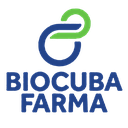Executive Secretary

VIII Simposio Internacional de Química y Ciencias Farmacéuticas
SICF
VIII Simposio “Diseño, Obtención y Desarrollo de Fármacos”
Resumen
Los anticuerpos monoclonales (AcMs) son biomoléculas complejas que se utilizan como terapia para diferentes enfermedades como el cáncer. Desarrollar AcMs biosimilares es difícil y los estándares regulatorios son muy estrictos; los candidatos se someten a una caracterización estructural profunda para evaluar la biosimilitud. Los inhibidores de puntos de control ayudan a restaurar la capacidad del sistema inmunológico para atacar las células cancerosas y detener su crecimiento; una de estas terapias es el nivolumab: un AcM IgG 4 que reconoce la molécula PD1 humana y bloquea su unión a los ligandos PDL1 y PDL2. El CIM está desarrollando un AcM anti-PD1 candidato a biosimilar de nivolumab producido en la línea celular CHO-K1. Se caracterizaron tres lotes de Ingrediente Farmacéutico Activo (IFA) provenientes de fermentaciones en perfusión de un biorreactor de 2 L en tres temperaturas diferentes y obtenidos con el mismo proceso de purificación. Se utilizaron técnicas del estado del arte para la caracterización fisicoquímica como SDS-PAGE, WB, DLS, SEC/NP/WCX/RP-HPLC, Far and Near UV-CD, FLD, MS y ELISA para la actividad biológica. Los lotes de anti-PD1 mostraron propiedades fisicoquímicas de pureza, heterogeneidad y estructura de orden superior típicas de los MAbs y similares a las reportadas para el producto original. La secuencia del candidato coincidió al 100 % con la secuencia reportada para nivolumab y fue capaz de inhibir la unión del PD1 a su ligando PDL1. El cambio de temperatura en el proceso de fermentación no afectó las propiedades fisicoquímicas y biológicas del AcM anti-PD1 candidato a biosimilar de nivolumab.
Abstract
Sobre el ponente

Roberto Machado Santisteban

Discussion




